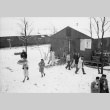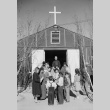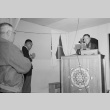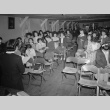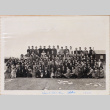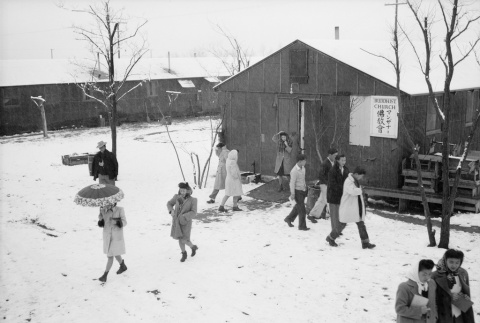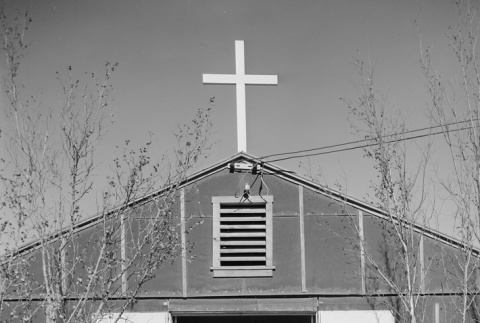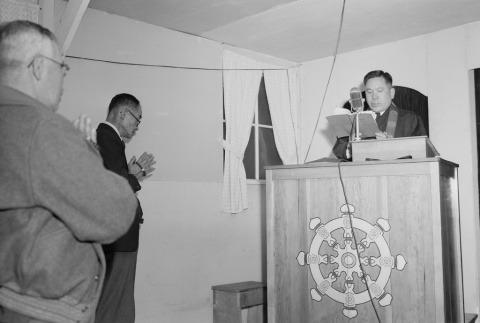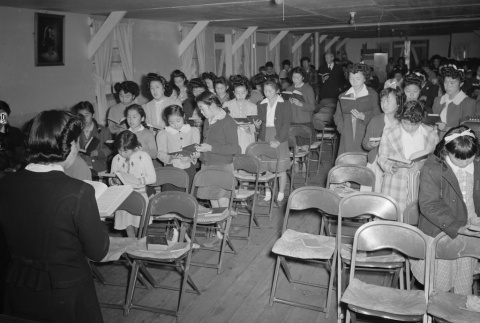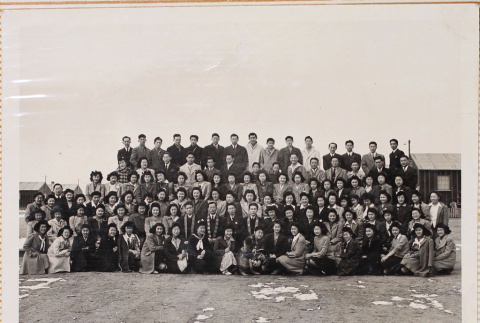Religion
Japanese Americans used religion as one way to handle the stress of the incarceration experience. Church served as both a spiritual comfort and a place for community gatherings. On Sundays, Buddhist and Christian services and Sunday schools were held in the recreation halls. State Shintoism was another popular religion within the Japanese American community but was banned by the U.S. government on the grounds that it included "Emperor worship." Church services initially were given in both Japanese and English, but camp authorities later banned the use of Japanese at all group gatherings (although translation into Japanese was later permitted at some religious services).
World War II
(231)
Concentration camps
(1434)
Religion
(255)
Related articles from the
Densho Encyclopedia :
Paul M. Nagano
